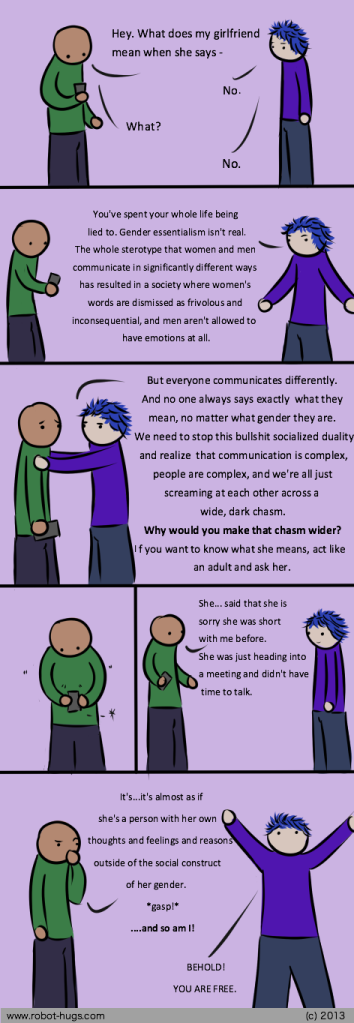Maria Ordoñez

Like a scene from a Pinterest board, the expectant mother takes one last swing at the stork-shaped pinata hanging above her. Confetti bursts through the air, raining down on the smiling mother as she removes her blindfold.
It’s… yellow?
Her friends and family stare in confusion, trying to decipher whether yellow means boy or girl. With tears in her eyes, the mother runs into the arms of her partner, both delighted by the reveal.
“It’s a human!” they exclaim.
Parties like these are part of the latest trend taking over social media: gender reveal parties. You’ve seen them everywhere from Instagram to YouTube, elaborate tactics employing pinatas, paint guns, and even smoke bombs to reveal one of two colors – pink or blue. Boy or girl.
With the increased accuracy of pre-natal DNA testing, gender reveal parties have started to replace the traditional baby showers we know and tolerate. In some cases, they can be organized as one and the same, but there aresome fundamental differences between the two. See, the gender reveal party, held much earlier in the pregnancy, is a co-ed event that is generally restricted to close friends and family. No more of those female-only showers where you have to invite all your coworkers and that one cousin you’ve never even met!
While this all seemslike a perfectly sweet excuse for a party, and an improvement from the classic baby shower, gender reveal parties have proven to be quite problematic. Let me tell you why:
- Did you mean “Genitalia Reveal Party?”

As it turns out, the supposed “gender” revealed at these parties is actually the chromosomal sexof the fetus determined at the time of fertilization. In other words, XX or XY chromosomes, testes or ovaries, penis or vagina. It’s all strictly anatomical and has nothing to do with the baby’s gender. In fact, the baby doesn’t even have a gender yet!
Although often confused with sex, gender is actually a social identity shaped by a person’s own life history and cultural context. For some people it can take years to define their gender identity or come to terms with it, which is why everyone should throw their own gender reveal party when they’re good and ready.
I happen to be ready for mine… I am 20-years-old and I identify as a cisgender female. WOO HOO, SOMEBODY GET THE CONFETTI!
2. Male, Female, and nothing in between.

Gender reveal parties are binary af.
For those not familiar with the term, binary means relating to two things. In terms of gender, binary refers to the assertion that there are only two genders, male and female. That’s why you’re only allowed to use two colors for decoration (you know which ones).
The thing is that, even anatomically speaking, nothing is binary. According to an article by The Guardian, 1.7% of people are intersex, meaning that they’re born with a combination of male and female biological traits. What color smoke bomb would you use for that? Purple? Yellow? No-colors-at-all-because-it’s-a-problematic-concept? I don’t know…
Gender identity exists on an even more varied spectrum, ranging from transgender to gender queer to gender fluid. But, the truth of the matter is that the fundamental structure of these parties is not set up to consider all the possible variations of gender, so why even have them in the first place?
3. You get a gender role, you get a gender role, everybody gets a gender role!

A list of popular party themes: Rifles or ruffles, ties or tutus, boots or ballet, and so on and so on.
From before these babies are born, their parents have decided what they can and cannot do based on their biological sex. Babies with penises will grow up to wear ties, not tutus, and babies born with vaginas will grow up to wear ruffles, not play with rifles.
This is not only potentially damaging to these babies as they grow up, but it also perpetuates a culture of female domesticity and toxic masculinity. Not to exaggerate or anything, but gender reveal parties are single-handedly reinforcing the patriarchy. Just saying…
As surprising as it is, as much as cultural norms surrounding gender have evolved, problematic traditions like gender reveal parties still exist. It seems like with every increase in awareness and acceptance of identities outside of the binary, the patriarchy finds a way to reinforce what it defines as the norm. The worst part is that it does this by hiding behind hashtags and confetti and a lot of cake.
But I see you, Patriarchy.
You can’t fool me.

